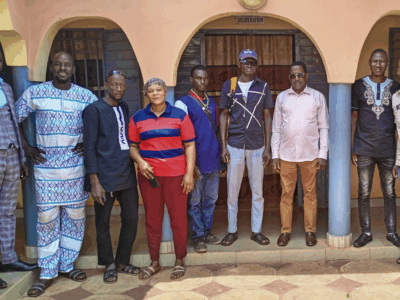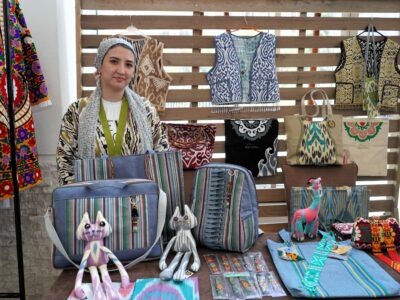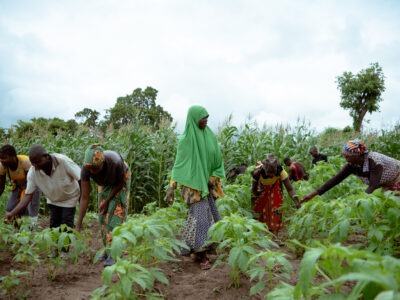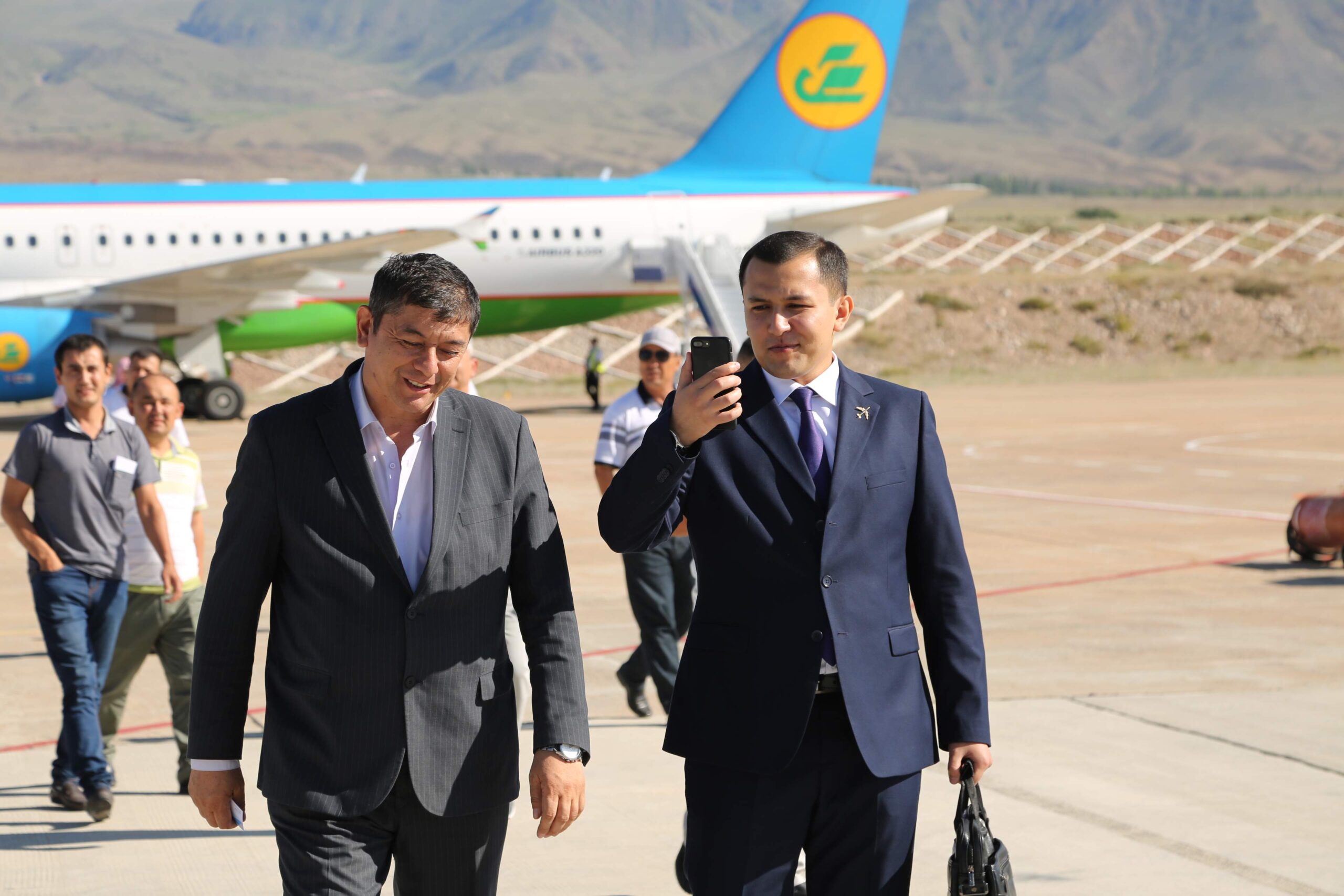
This August, the USAID Enterprise Competitiveness Project celebrated its first-year anniversary since launching in 2018 in a high-profile event that featured the speaker of the Kyrgyz Parliament as a special guest.
In just one year of operation, the Project has partnered with enterprises, improved their access financing and equipment, and provided a boost to the tourism sector.
Partnering with Growing Enterprises
The USAID Enterprise Competitiveness Project has partnered with 42 enterprises to date. Four of these partnerships are with large enterprises, and 38 of them involve $2.47 million worth of grants for small- and medium-sized enterprises (SMEs) in agriculture, manufacturing, tourism, health, food service, banking, and more. Each grant recipient, of which half are women and youth, went through a rigorous submission process before being selected from a pool of roughly 600 applicants.
Meanwhile, the private sector has committed resources worth $45 million, making their contributions 18 times more than the Project itself. Of this, $22 million is investment in capital expenditure, or the funds a company spends to buy, maintain, or improve its facilities, equipment, and more.
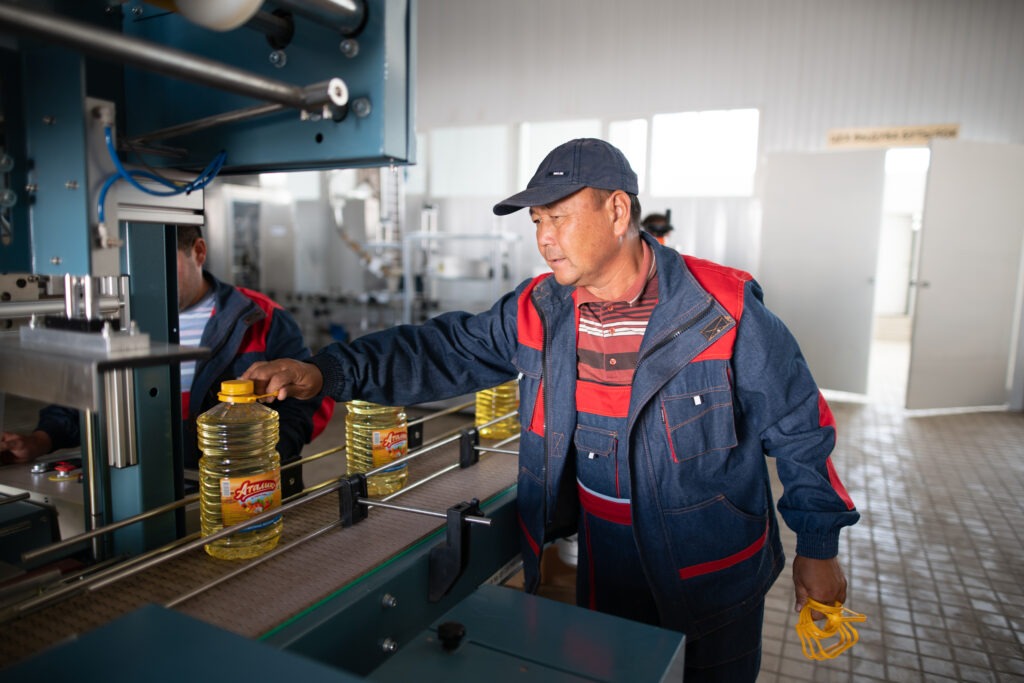
The end goal of these partnerships, of course, is to strengthen a given value chain. For oil crops, a previous ACDI/VOCA project supported the enterprise ElDan Atalyk in creating an industry for edible oil processing in the south. The USAID Enterprise Competitiveness Project is now creating linkages among multiple enterprises to continue growing the sector.
First, Agro Lead, a support service provider, trained and mobilized farmers to use improved technologies. Tien Shan Mission Society then supplied them with high-quality seeds. Engels Farm provided machinery services, and, lastly, ElDan Atalyk purchased the farmers’ harvests for oil processing.
In the next three to five years, the support of these enterprises is estimated to result in 19,500 metric tons of oil crops grown on 1,000 hectares of land and $2.5 million in additional income for 400 local Kyrgyzstani farmers.
Supporting Better Access to Financing
The Project is also helping enterprises access the growth-oriented capital they need through non-bank financial institutions. The Project’s support of Highland Capital, the first-ever fund established in the Kyrgyz Republic, is attracting more investment, including the $1.3 million that has flown into SMEs in the last year. The Project is also partnering with AV Frontiers, created through a subsidiary of ACDI/VOCA, and Accelerate Prosperity as well as four traditional banks, including two banks providing more financing opportunities to women entrepreneurs.
To help enterprises become investment ready, the Project led a business accelerator program for 31 women- and youth-led startups. Two of these startups are now negotiating investment deals, while seven are co-investing with the Project to expand their businesses.
The Project has also engaged the government of the Kyrgyz Republic in initiatives to spark policy reforms benefitting SMEs.
Promoting Tourism to the Kyrgyz Republic

Did you know that Lonely Planet named the Kyrgyz Republic one of its top five countries to visit in 2019? The country is home to the second-largest alpine lake in the world, Lake Issyk-Kul. But with tourism still a budding industry, the USAID Enterprise Competitiveness Project partnered with the local tourism company Inspiro Group to charter flights from Tashkent in Uzbekistan to the Issyk-Kul region.
So far, 200 tourists have flown each week. Tickets are sold out for the 2019 tourism season. Inspiro Group’s sales have already increased by hundreds of thousands of dollars. The company already plans to increase the flight offerings to two per week during the 2020 summer season.
Learn more about the USAID Enterprise Competitiveness Project.
Learn more about our work in the Kyrgyz Republic.

